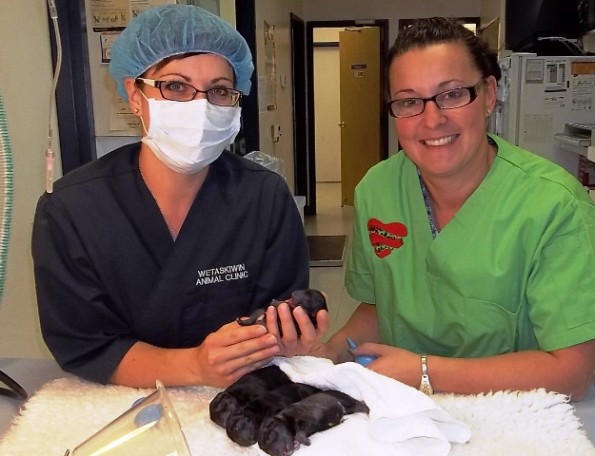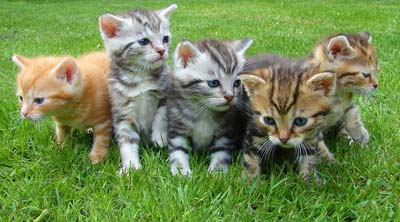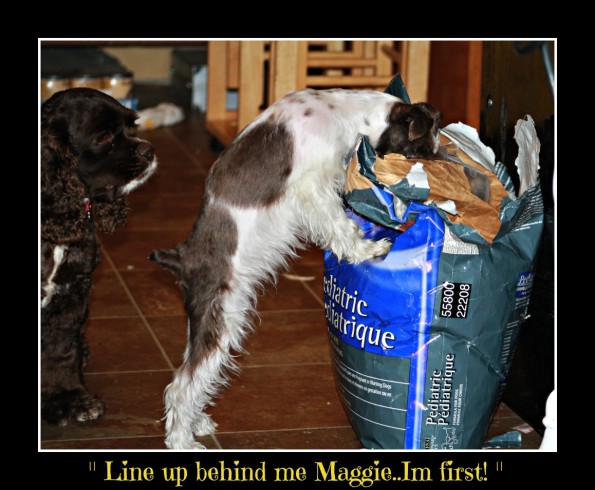
Proper balanced nutritional diets are just as important for growing puppies and kittens as it is for your own human babies. It’s easy to get confused or overwhelmed by all the pet foods on the market. We can help you weed through the choices and find a puppy or kitten food that will meet your growing pet’s specific nutritional needs. We even carry many nutritionally balanced, veterinary-approved brands in our clinic.
Feel free to ask us for a food recommendation or to contact us with any nutrition questions or concerns you might have. We’re happy to help!
For more information click Selecting the Right Puppy Food for your puppy.
Feeding Kittens: What, When, How Much
When it comes to cuteness, few critters can compare to kittens. There are millions of homeless pets, so it’s a great idea to adopt your feline friend from an animal shelter and you get two feel-good bonuses: You save money — and a life. If you’ve just acquired a kitten (or two), you’re probably learning all about kitten care. You want to do what you can to ensure that your adorable baby grows into a healthy adult. Proper feeding is a very big part of the health equation. After the first four to six weeks of mother’s milk, a kitten gradually transitions to kitten food, and is completely weaned at about eight to ten weeks. Here’s what you need to know once you’ve brought your kitten home.
A kitten’s weight may double or even triple during the first few weeks of life. To support this explosive growth — as well as high activity levels — your kitten may have triple the energy needs of an adult cat. These high energy needs make it harder for kittens to get enough calories in one meal, so most kittens will want to eat at least three or four meals a day. Kittens’ needs for fat, some fatty acids, and most vitamins are the same as for adult cats. But, kittens have a lot higher requirement for protein, amino acids, and minerals, as well as for some vitamins. For example, kittens should get about 30% of their energy from protein. For these reasons, most experts recommend you feed your kitten specially formulated feline pediatric or kitten food until at least one (1) year of age. Although some cat foods are labeled as appropriate for kittens and cats of all life stages, these aren’t appropriate for your kitten unless feeding tests support the label claim.
And don’t forget to provide plenty of fresh water — it’s a key to keeping cats of all ages healthy. –adapted from WebMD

